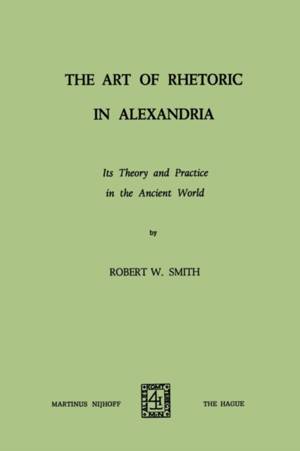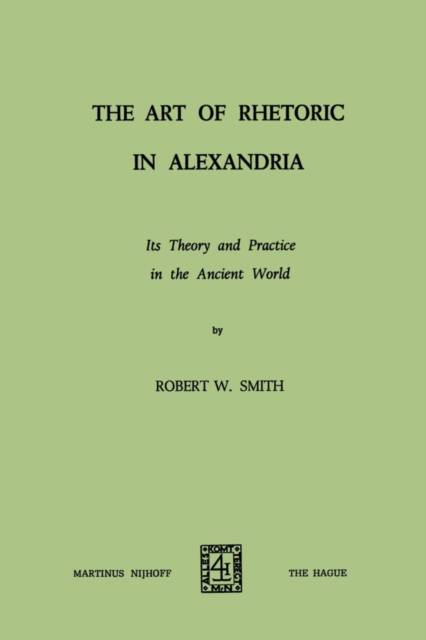
- Afhalen na 1 uur in een winkel met voorraad
- Gratis thuislevering in België vanaf € 30
- Ruim aanbod met 7 miljoen producten
- Afhalen na 1 uur in een winkel met voorraad
- Gratis thuislevering in België vanaf € 30
- Ruim aanbod met 7 miljoen producten
Zoeken
The Art of Rhetoric in Alexandria
Its Theory and Practice in the Ancient World
Robert W Smith
Paperback | Engels
€ 116,16
+ 232 punten
Omschrijving
Goethe's great love for the ancient classics once prompted him to write ("Gesprliche mit Eckerman," April 1, 1827), "Man studiere nicht die Mitgeborenen und Mitstrebenden, sondern grosse Menschen der Vorzeit, deren Werke seit Jahrhunderten gleichen Wert und gleiches Ansehen behalten haben . . . Man studiere Moliere, man studiere Shakespeare, aber vor allen Dingen die alten Griechen und immer die alten Griechen. " Anyone examining the history of Western ideas has found this statement to prove eminently true: one must study above all others the ancient Greeks. This book, by its study of the Greeks and others, seeks to fill in a small way the large gap which has obtained in the history of rhetoric in the Eastern Mediterranean area: the rhetoric (formal spoken discourse) of the courtroom, street corner, classroom, and legislative hall. Scholars have long investigated, and with considerable success, the figures and movements in Rome and Athens until Con- stantine, or even later, but for some reason they have neglected the role and impact of oratory in most Asian and North African centers (Antioch excepted). If this monograph can provide outlines of its activity in Greco-Roman Alexandria to approximately A. D. 400 and encourage further scholarship in Pergamum, Tarsus, and elsewhere, it will have fulfilled its purpose. At the same time, it is not intended as a history of the city, nor an economic, political, or religious account of its life.
Specificaties
Betrokkenen
- Auteur(s):
- Uitgeverij:
Inhoud
- Aantal bladzijden:
- 168
- Taal:
- Engels
Eigenschappen
- Productcode (EAN):
- 9789401503501
- Verschijningsdatum:
- 1/01/1974
- Uitvoering:
- Paperback
- Formaat:
- Trade paperback (VS)
- Afmetingen:
- 156 mm x 234 mm
- Gewicht:
- 267 g

Alleen bij Standaard Boekhandel
+ 232 punten op je klantenkaart van Standaard Boekhandel
Beoordelingen
We publiceren alleen reviews die voldoen aan de voorwaarden voor reviews. Bekijk onze voorwaarden voor reviews.








